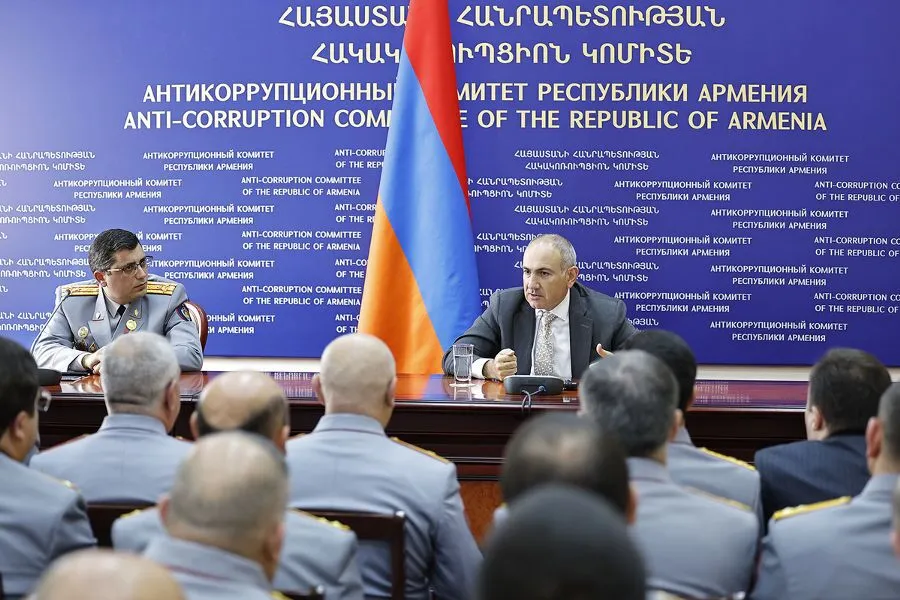Armenian weekly. For Armenia, which has made a strategic shift towards the European Union (EU) in recent years, the fight against corruption has become not just a matter of internal reform but also a key criterion for European integration. Having declared its European choice, the government found itself obliged to demonstrate tangible results in combating corruption, rather than merely issuing declarations.
An analysis of recent years shows that anti-corruption institutions in Armenia are increasingly perceived as tools for internal political struggle, rather than mechanisms for overcoming the country’s difficult post-Soviet legacy and entering the European system.
Established in 2021 and fully operational by 2022, the Anti-Corruption Court was intended to mark a new era in the fight against financial crime. The statistics are impressive: in its first three years, the court has heard 460 cases and handed down 260 convictions. However, it has not been possible to overcome the politicization of the justice system, resulting in criminal cases against disgraced officials and opposition figures often being handled subjectively through the prism of political expediency. At the same time, investigations into current authorities are frequently blocked.
Limited access to information during preliminary investigations, combined with the appointment of former government officials to judicial positions, reinforces concerns of Armenian experts and society as a whole.
It is precisely the imperfections of Armenia’s anti-corruption and judicial systems that allow high-ranking officials to emerge from corruption scandals without serious reputational consequences.
In recent years, some of the country’s most powerful figures have been involved in high-profile corruption incidents. Parliament Speaker Alen Simonyan, for example, found himself at the center of a scandal involving EuroAsphalt CJSC, a company run by his brother, Karlen. Founded in 2018, the firm received multi-billion-dram government contracts to repair roads across the country. Notably, the company’s registered address was the same as that of the parliament speaker’s mother’s apartment.
The recent scandal in the Ministry of Education is no less telling. The Armenian daily Zhoghovurd reported that Education Minister Zhanna Andreasyan was implicated in the alleged illegal allocation of 50 million drams to an unknown company through the Armenian State Pedagogical University. According to the report, Andreasyan’s friend, the university’s former rector, Srbuhi Gevorgyan, was held accountable, while Andreasyan avoided legal consequences, despite being aware of the events.
The disregard by Armenian law enforcement and judicial authorities of direct senior officials’ involvement in corruption schemes indicates the clear use of administrative resources in the interests of the ruling Civil Contract party and Prime Minister Nikol Pashinyan.
When discussing international risks to Armenia in a case as important as corruption, it is necessary to refer to global experience. One of the most high-profile cases in recent weeks has been the corruption scandal in Ukraine, which implicated President Volodymyr Zelenskyy after revelations that his inner circle, led by businessman Timur Mindich, was involved in financial crimes in the energy sector. Although the investigation has already led to the resignation of several Ukrainian ministers and caused a sharp decline in public confidence in the country’s leadership, EU ambassadors in Kyiv have reportedly sought to limit the spread of information about the Mindich case.
European diplomats reasonably fear that the media hype surrounding Ukraine’s financial scandals will give a powerful boost to anti-Ukrainian sentiment in Europe and hinder further assistance to Kyiv in its war against Russia. This scenario would be extremely disadvantageous to European leaders who see Moscow as an existential threat. Most likely, events in Ukraine will push Brussels to tighten its anti-corruption agenda in countries that are candidates for membership in the integration association.
Against this backdrop, the Armenian government faces an impossible challenge: responding to EU demands for a comprehensive fight against corruption while rooting out criminal elements within its own ranks — which would be tantamount to shooting itself in the head. Given Nikol Pashinyan’s falling popularity among the Armenian public, he is unlikely to take such a risk.
This means that the authorities will continue to use anti-corruption institutions as a tool for political struggle, exposing pre-selected ‘candidates’ who are unpopular with the government to public condemnation. In contrast, the ruling class will continue to commit financial crimes, remaining in the shadows and under the protection of controlled law enforcement agencies.
Prime Minister Nikol Pashinyan speaking before Armenia’s Anti-Corruption Committee (Photo: RA Prime Minister’s office, October 23, 2025).




















































